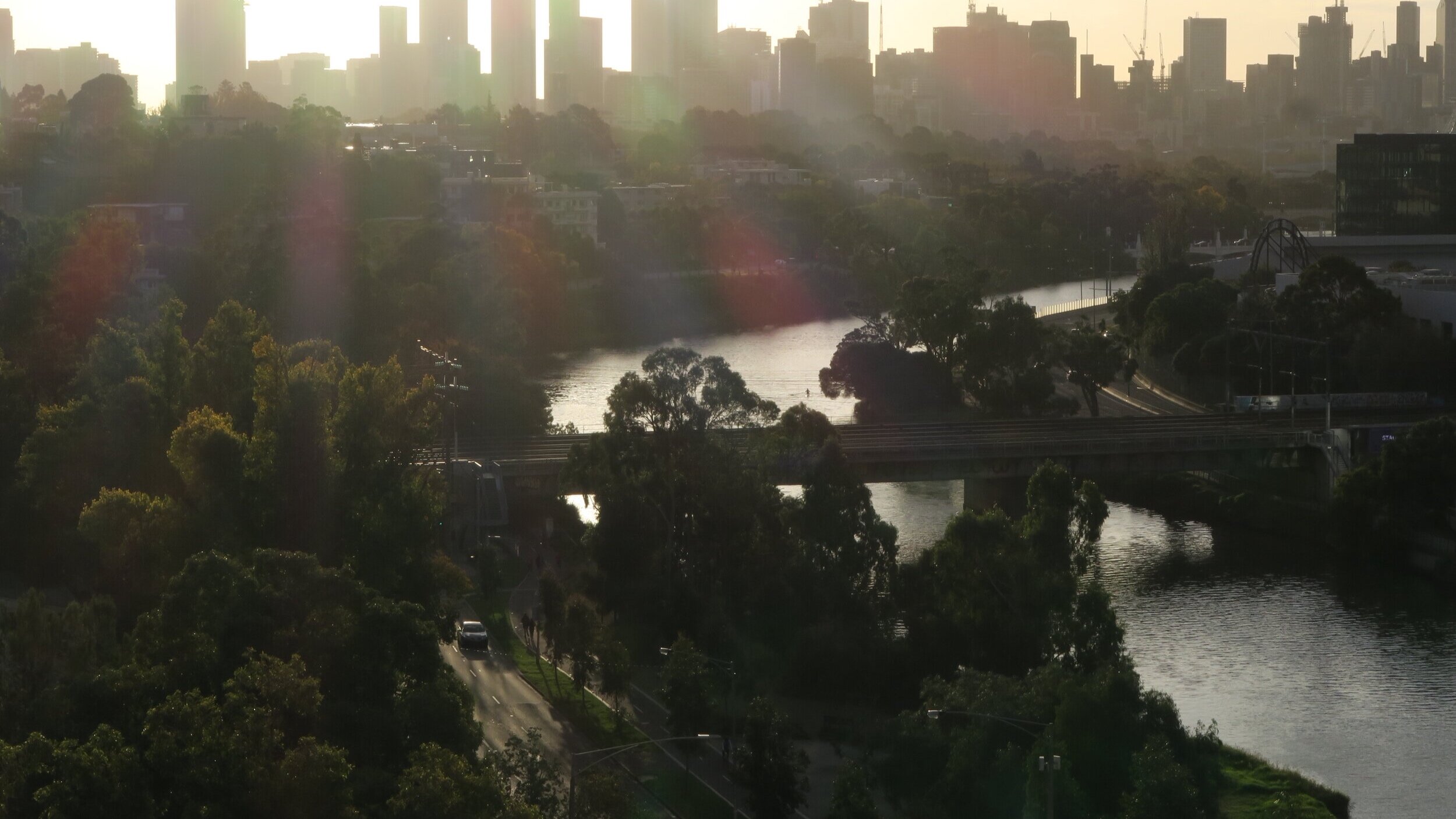
Publications
A selection of stories about research data in traditional and non-traditional publications.
Belton, A., Boyle, D., Faux, N., Brownlee, R., Lovelace-Tozer, M., & Ward, R. (2024). Advancing Australian Vocabularies and Mappings, The University of Melbourne & ARDC. The University of Melbourne. https://doi.org/10.26188/27913398
Lovett-Murray, T., Bell, B., Black, A., Nicholson, E., Brook, H., Marini, G., Mahisa Halim, A., Michalewicz, A., Armstrong, B., Belton, A., Prpic, J., Tomko, M. (2024). Storying Indigenous engineering ingenuity in the aquaculture systems of the Gunditjmara at the UNESCO World Heritage BudjBim Cultural Landscape [Conference presentation]. De/coding Digital Archaeology Symposium (MDAP/CAA). Melbourne, Australia.
Belton, A., Fitzgerald, E., Lee, S., & Cobb, M.. (2024). Visualisations of Metropolitan Melbourne as a city for dogs(Version1). The University of Melbourne.https://doi.org/10.26188/26892127
Belton, A., Fitzgerald, E., & Barar, F.. (2024). Map of Civil Infrastructure in Metropolitan Melbourne(Version1). The University of Melbourne.https://doi.org/10.26188/25608168.v1
Belton, A., Cobb, M., Fitzgerald, E., & Lee, S.. (2024).City for Dogs: Focussed on City of Yarra LGA. The University of Melbourne.https://doi.org/10.26188/27321414
McDonough, S., Belton, A., Selkrig, M., & Keamy, R. K. (2024). Creative research methods in a digital world: Problem-solving and collaboration in research. In H. Kara (Ed.), Handbook of Creative Research Methods (pp. 265 - 278). Bloomsbury. https://doi.org/DOI:10.5040/9781350355774.ch-020
Belton, A., Martin, B., McNally, C., Sweeney, D., Jativa Guzman, F., Harris, J., Coleman, K., Hinze, M., HEALY, S., Glasser, S., Cochrane, T., & Spreadborough, K. (2024). Sorry Not Sorry from SoTEL Community of Online Pedagogy. The University of Melbourne. https://doi.org/10.26188/25928788
Arndt, S., Belton, A., Cochrane, T., Healy, S. & Gurr, D. (2023) Speculating on higher education in 2041 – Earthworms and liminalities, in K. Coleman, D. Uzhegova, B. Blaher & S. Arkoudis (Eds) The Educational Turn. Rethinking the scholarship of teaching and learning in higher education (Cham.: Springer), pp. 207-224.
Colla, R., Belton, A., Fitzgerald, E., Manandhar Shrestha, K. (2023). Stories of hope: A generative story of an interdisciplinary research collaboration. Faculty of Education Research Conference, 26 October 2023.
Williams, J. L., Belton, A., Coleman, K. (2022). Methopedagogy of the Metaverse. AARE 2022, 27 Nov-1 Dec 2022.
Healy, S., Belton, A., Thompson, K. (2022). Can AI be an ethical collaborator? AARE 2022, 27 Nov-1 Dec 2022.
Belton, Amanda (2021): Hearing Their Stories: Image Quilt. University of Melbourne. Figure. https://doi.org/10.26188/16682683.v2
Belton, Amanda (2021): Playing with image quilt layouts. University of Melbourne. Figure. https://doi.org/10.26188/16713454.v1
Spreadborough, K., Cochrane, T., Glasser, S., Sweeney, D., Harris, J., Belton, A., Coleman, K., Melzack, G., & Fitzgerald, E. (2021). CO-llaborative VI-rtual D-esign: A Collaborative Autoethnography on Conducting Exclusively Online, Data-Led Collaborations in the Creative Industries. Qualitative Inquiry. https://doi.org/10.1177/10778004211039165
Belton, A.,Cochrane, T., Coleman, K., Fitzgerald, E., Glasser, S., Harris, J., Melzack, G., Spreadborough, K., & MacTavish, K. (2021): #DataCreativities How to write a hit Co-Lab Poster. https://doi.org/10.26188/15001158
Cochrane T; Coleman K; Belton A; Fitzgerald E; Glasser S; Harris J; Melzack G; Spreadborough K; MacTavish K. #DataCreativities: Developing a trans-disciplinary data visualization framework from Arts practice to teaching and learning during COVID19. PACIFIC JOURNAL OF TECHNOLOGY ENHANCED LEARNING 2021. 10.24135/pjtel.v3i1.84
Healy, S., Coleman, K., Sallis, R.J., Belton, A. (2021). Encountering a Pedagogy of the World in a University Setting. In S. Riddle, A. Heffernan & D. Bright (Eds.), New Perspectives on Education. https://doi.org/10.4324/9781003145806
Belton, Amanda (2021): Fish out of water Appliqued Laptop cover (front). University of Melbourne. Figure.
Belton, A. (2020): Reflections on surveys and GLAM data at the beginning of the COVID-19 pandemic. University of Melbourne. Presentation. https://doi.org/10.26188/13175096.v1
* Cochrane, T., Coleman, K., Belton, A., Fitzgerald, E., Glasser, S., Harris, J., Melzack, G., Spreadborough, K., & MacTavish, K. (2021). #DataCreativities: Developing a trans- disciplinary data visualization framework from Arts practice to teaching and learning during COVID19. Pacific Journal of Technology Enhanced Learning, 3(1), 8-10. https://doi.org/10.24135/pjtel.v3i1.84
* Cochrane, T., Coleman, K., Belton, A., Fitzgerald, E., Glasser, S., Harris, J., Melzack, G., Spreadborough, K., & MacTavish, K. (2021). #DataCreativities: Developing a trans-disciplinary data visualization framework from Arts practice to teaching and learning during COVID19. Pacific Journal of Technology Enhanced Learning, 3(1), 8-10. doi:10.24135/pjtel.v3i1.84
* Coleman, K., Healy, S., Wouters, N., Martin, J., Campbell, L., Peck, S., Belton, A., Hiscock, R. (2020). Scicurious as method: Learning from GLAM young people living in a pandemic about cultivating digital co-research-creation spaces that ignite curiosity and creativity. In Kara H. & Khoo S. (Eds.), Researching in the Age of COVID-19 Vol 3: Volume III: Creativity and Ethics (pp. 102-111). Bristol: Bristol University Press. doi:10.2307/j.ctv18dvt3x.15
Belton, A. (2014). Social Networking in Recruitment. Impackt Publishing.
The Data Creativities Project was an interdisciplinary research project examining data traces left from the rapid move online in education and creative sectors in Melbourne, Australia in 2020. As a result of the lockdowns imposed to combat the initial spread of COVID-19, this collaboratory began within the anxieties of 2020. #DataCreativities takes a data-related approach to understanding the fast-paced shift to making, learning, teaching, and living in a crisis through research and art.
Read more about this collaboration that explored the conjunction of data science and creative approaches in our auto ethnographic article.
